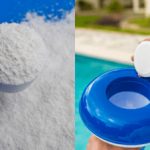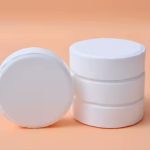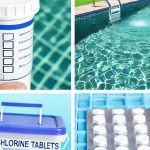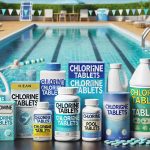Swimming pools are cherished for their refreshing waters, providing an oasis of relaxation and recreation for countless individuals. However, maintaining a pool involves more than just filling it with water. A crucial aspect of pool maintenance is ensuring proper chemical balance, which is often achieved through the use of chlorine tablets. While chlorine is essential for disinfecting pool water and keeping it safe for swimmers, improper use of chlorine tablets can lead to a host of chemical balance issues that can affect water quality and swimmer safety. In this comprehensive guide, we will explore the impact of improper use of pool chlorine tablets on pool chemical balance, and discuss strategies for maintaining a healthy and balanced pool environment.
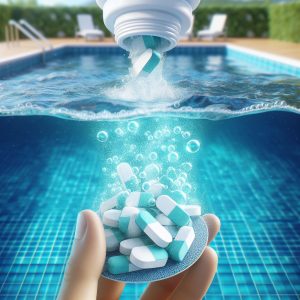
Understanding Pool Chlorine Tablets
Chlorine tablets, also known as pool chlorine pucks or pool chlorine tabs, are solid tablets containing stabilized chlorine compounds, typically trichloroisocyanuric acid or sodium dichloroisocyanurate. These tablets are designed to slowly dissolve in water, releasing chlorine to disinfect the pool and control algae and bacteria growth. Chlorine tablets are a convenient and effective way to maintain proper chlorine levels in swimming pools, ensuring clean and sanitary water for swimmers.
The Importance of Pool Chemical Balance
Maintaining proper chemical balance in a swimming pool is essential for several reasons. Firstly, it ensures swimmer safety by preventing the growth of harmful bacteria and pathogens in the water. Secondly, it helps prevent algae growth, which can make the pool water cloudy and unappealing. Additionally, proper chemical balance promotes swimmer comfort by preventing skin and eye irritation caused by imbalanced water chemistry.
Common Chemical Balance Issues Caused by Improper Use of Chlorine Tablets
Chlorine Overdose: One of the most common issues associated with improper use of chlorine tablets is chlorine overdose. Overdosing the pool with chlorine tablets can lead to excessively high chlorine levels in the water, which can cause skin and eye irritation in swimmers. Additionally, high chlorine levels can degrade pool equipment and surfaces, such as liners and metal fittings.
pH Imbalance: Chlorine tablets can also affect the pH balance of the pool water. Chlorine is acidic in nature, and the prolonged use of chlorine tablets can lower the pH of the water, making it more acidic. An imbalanced pH level can cause skin and eye irritation in swimmers, as well as damage pool equipment and surfaces.
Alkalinity Imbalance: In addition to affecting pH levels, chlorine tablets can also impact the total alkalinity of the pool water. Total alkalinity acts as a buffer, helping to stabilize pH levels and prevent rapid fluctuations. Improper use of chlorine tablets can lead to low alkalinity levels, resulting in pH instability and potential corrosion of pool equipment.
Cyanuric Acid Buildup: Many chlorine tablets contain stabilizers, such as cyanuric acid, to protect chlorine from degradation due to UV exposure. However, overuse of chlorine tablets can lead to excessive buildup of cyanuric acid in the pool water, which can interfere with chlorine’s effectiveness as a disinfectant. High levels of cyanuric acid can also lead to cloudy water and chlorine-resistant algae growth.
Strategies for Preventing Chemical Balance Issues
Proper Dosage: Follow manufacturer recommendations for the proper dosage of chlorine tablets based on the size of your pool. Avoid over-dosing the pool with chlorine tablets, as this can lead to chemical balance issues and swimmer discomfort.
Regular Testing: Regularly test the pool water for chlorine, pH, alkalinity, and cyanuric acid levels using a pool water testing kit. Maintain proper chemical balance by adjusting chlorine tablet dosage and using pH and alkalinity adjusters as needed.
Balanced Shock Treatment: Periodically shock the pool with a balanced shock treatment to oxidize organic contaminants and restore chlorine effectiveness. Use a non-chlorine shock treatment to avoid adding excess chlorine to the pool water.
Cyanuric Acid Management: Monitor cyanuric acid levels in the pool water and avoid excessive buildup by using chlorine tablets with lower cyanuric acid content or periodically diluting the pool water through partial draining and refilling.
Professional Maintenance: Consider hiring a professional pool maintenance service to regularly inspect and balance the chemical levels in your pool. A professional can provide expert advice and assistance in maintaining a healthy and balanced pool environment.
Conclusion
Proper use of pool chlorine tablets is essential for maintaining a healthy and balanced pool environment. By understanding the impact of chlorine tablets on pool chemical balance and implementing strategies to prevent chemical balance issues, pool owners can ensure clean, safe, and comfortable swimming conditions for themselves and their guests. Remember to always follow manufacturer instructions and seek professional advice when needed to maintain optimal pool chemistry and enjoy a refreshing swim experience.

